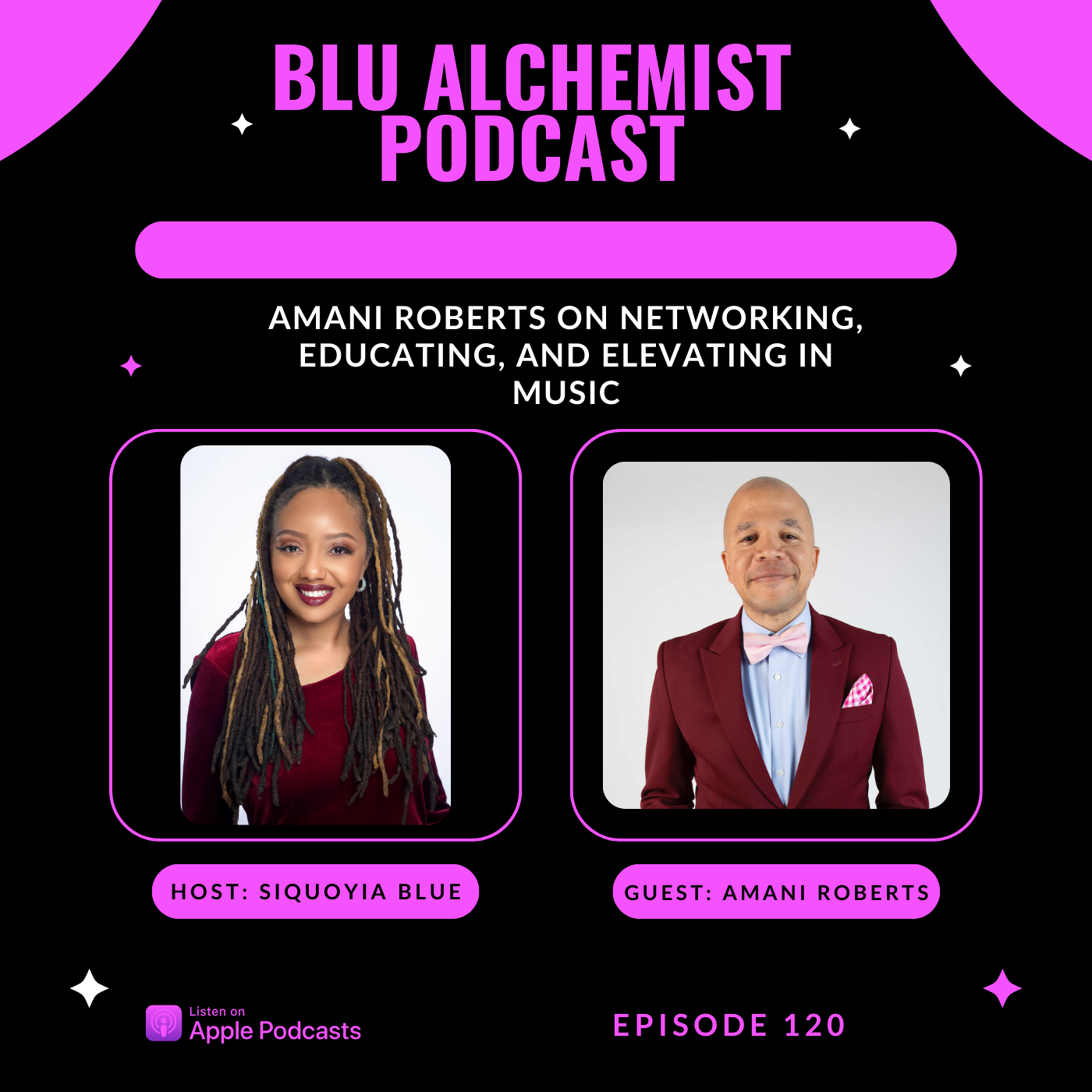Amani Roberts on Networking, Educating, and Elevating in Music

TLDR: Amani Roberts shares his journey from being inspired by Biz Markie to becoming a DJ, professor, and advocate for understanding the music business. He emphasizes the importance of networking, education, and the evolving landscape of R&B and hip-hop, while also discussing the impact of technology and AI on music creation.
In this episode, Sequoia Blue interviews Amani Roberts, a DJ, historian, professor, and champion of R&B. Amani shares his inspiring journey into the music industry, the importance of education, and the evolving landscape of music today.
The Journey Begins
Amani's passion for DJing was ignited during his time at Howard University in Washington, D.C. He recalls a memorable night at a local club called Quigley's, where he witnessed the legendary Biz Markie perform. Biz's ability to engage the crowd with a mini set of TV theme songs and classic hip-hop tracks inspired Amani to pursue DJing. However, he initially hesitated, doubting the legitimacy of a career in music due to financial concerns.
Eventually, Amani took the plunge, enrolling in Scratch Academy, where he completed the DJing and music production program twice. This decision marked the beginning of his successful DJ career.
Building Confidence in the Music Industry
Amani discusses the challenges many aspiring musicians face, particularly the lack of confidence stemming from societal pressures and parental concerns. He emphasizes the importance of taking risks and building skills while maintaining a full-time job. Networking, he insists, is crucial in the music industry. Collaborating with other DJs and exploring opportunities in the corporate market can provide better hours and financial stability.
The Importance of Music Production
In addition to DJing, Amani ventured into music production, focusing on remixes and collaborating with various artists. This experience not only enhanced his production skills but also provided additional income. He highlights the significance of diversifying one's skill set in the music industry.
Teaching the Business of Music
Amani's journey led him to a professor position, where he teaches music business at a university. He covers essential topics such as royalties, touring, marketing, and copyright. Amani believes that many musicians lack knowledge about the business side of music, which can lead to missed opportunities and financial pitfalls. He encourages aspiring artists to educate themselves, whether through formal education or self-study.
Navigating the Independent Music Landscape
For independent artists, Amani offers valuable advice. He suggests building an email list to avoid dependency on social media algorithms and exploring various avenues for income, such as sync licensing, where music is placed in TV shows, movies, or commercials. He emphasizes that artists can maintain their independence without signing contracts with major labels, although it may require more effort to achieve mainstream success.
The Evolution of R&B and Hip-Hop
Amani reflects on the current state of R&B and hip-hop, noting that while the genres have evolved, they remain relevant. He points out that many contemporary hip-hop tracks sample classic R&B songs, showcasing the genre's lasting influence. Despite the challenges faced by R&B artists, Amani believes that the genre is alive and well, with talented artists continuing to emerge.
The Role of Technology in Music Creation
As technology advances, Amani discusses the impact of AI on music production. While he acknowledges that AI can be a useful tool for creating beats or assisting with lyrics, he believes it cannot replicate the emotional depth and storytelling inherent in human-created music. Amani encourages artists to embrace technology while remaining true to their unique voices.
Final Thoughts and Resources
Amani concludes the conversation by inviting aspiring musicians to reach out for coaching and support. He emphasizes the importance of continuous learning and adapting to the ever-changing music landscape. For those interested in his insights, Amani's book, which explores the history of R&B groups, is available on various platforms.
In summary, Amani Roberts' journey highlights the significance of networking, education, and resilience in the music industry. His experiences serve as an inspiration for aspiring artists navigating the complexities of their careers.







